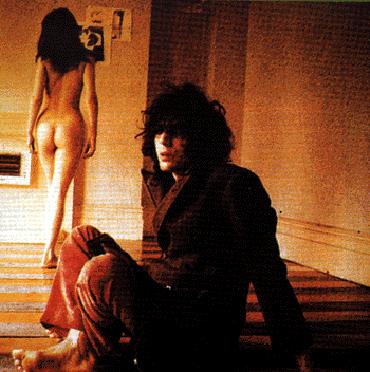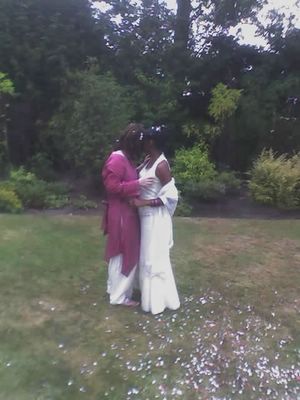
Syd (Roger Keith) Barrett.
Syd Barrett, seminal musical artist, founding member of Pink Floyd and recluse passed away due to diabetes this July 7th 2006.
It seems the only thing that will shake me out of this dark miasma nowadays is when someone I respect dies.
Syd Barrett was one of those men.
Syd joined Pink Floyd in 1965, sang, played lead guitar and wrote all but one song on their debut and inimitable album "Piper at the Gates of Dawn". Syd named the Pink Floyd after old bluesman Pink Anderson and another blues musician named Floyd "Dipper Boy" Council, which was at least in my mind preferable to the previous names the group had, names like "Architectural Abdabs" and "the Megadeaths". The Floyd started off by covering American blues standards, but then Barrett took acid for the first time, and the writing that ensued almost single handedly created the English Psychedellic sound.
Unfortunatly Barrett, whilst experimenting with large amounts of LSD (girls apparently enamoured with him and the legend he was creating even started dropping acid into his drinks on a regular basis) triggered a latent schitzophrenia that grew more and more in control of his life as the bands popularity grew. Many report seeing Barrett on stage with the group, strumming on one chord through entire concerts, or purposly detuning his guitar, or, more often than not, not playing at all. As the groups popularity grew the delicate and incresingly deraged Syd joined the group on a disastourous US tour, that had to be abandoned as a result of Syds behaviour (which continued in much the same fashion as it had before, only this time on US national television shows.). After this show the brief five man pink floyd toured, with the groups friend David Gilmoure taking over the guitar parts which Syd by this time, rarely played. The group at this point considered keeping Syd on as a songwriter (as he, up until this point had produced most of the groups material). This did not come to pass. Eventually one day, the group just did not stop in the van to pick him up. The Pink Floyd went on to become a very different creature in years to come. The last recorded contribution to the Pink Floyd that Barrett made was the haunting "Jugband Blues" which appeared on the follow up to "Piper" "A Saucerfull of Secrets." which was an effective chronology of his mental disintegration.
After he was exiled from the Floyd, Barrett however was not at this point completely unproductive. Between 1968 and 1972 (the year I was born) Barrett pursued a solo career, or at least a couple of solo projects. The first of these projects was his inital solo album "The Madcap Laughs" (one of the photos from the Madcap sessions is the image associated with this article). "Madcap" was just that, a collection of mad, fragile, lonely and isolated songs that truly reflected his state of mind, notably "Dark Globe" an inside out look of his mental illness. "Madcap" was produced mostly by his old band members Roger Waters (the composer of "The Wall") and David Gilmore (the guitarest who replaced Syd in the Floyds lineup). There has been much controversy and discussion about the inclusion of Barrets more vulnerable moments before and after tracks, apparently to give the album a more "authentic" feel. The songs themselves are timeless, and all are classics.
The follow up album "Barrett" was recorded between February and July 1970, the cover of which was drawn in Barretts own hand, regimented lines of insects span the front, a parallel of his still fragile and fragmented mind. The sound of this album is more polished, but it fails to conceal the even more degenerative state of Barretts Schitzophrenia.
After the "Barrett" album was released, he appeard on John Peels top gear, and played five songs, one of which had already been released.
Barrett played one more gig, at Londons Corn Exchage, where his head hung down away from his guitar, and the mike, which made his singing inaudible. After four songs, Barrett politely put down his guitar, and walked off stage.
In 1974, Peter Jenner (once Floyd manager) talked Barrett into returning to
Abbey Road in the hope of recording another album. Nothing of real note became of the sessions, which lasted three days where Syd mostly did riffs of blues rhythm tracks with faltering and disjointed guitar (the only titled track is the fascinating "If You Go, Don't Be Slow").
Once again, Barrett withdrew from the music industry into reclusivity. Though he died at sixty, Syd is preserved in the minds of most in his Glory Days, early twenties and more beautiful than Jim Morrison.
After the last sessions Syd sold the rights of the music back to the record company and moved into a London Hotel until the money ran out. Then, with no cash, he walked, from London, back to his mothers basement in Cambridge, where he continued to live until his death a few days ago.
He reverted to his first art love, painting, and created several large canvasses, but he never picked up a guitar again, save to strum it. He cut himself off from all except his family. Even then however, fans from the past, and paparrazzi followed him to his home town and every few years from the early 80's on he was occassionally photographed cycling to and from the shops. Syd never liked being reminded of his rock-star past and resented any reminders, it was for this reason that no member of Pink Floyd ever decided to visit him at home.
Syd "Roger Keith" Barrett left behind a menagerie of fragile, crystalline songs that will ring true through the many years to come, and map a past of beauty, love, and isolation.
You would do well to pick up his albums for they can tell us much about how fragile, and how beautiful we are.
Syd, Roger, Rest In Peace.
You brought us such Wonder.
Peace and Hope
FatherCrow.




